To celebrate the start of another baseball season, we’re offering several galleries of vintage baseball-themed ads.
Our first gallery offers early advertisements for baseball equipment and uniforms.
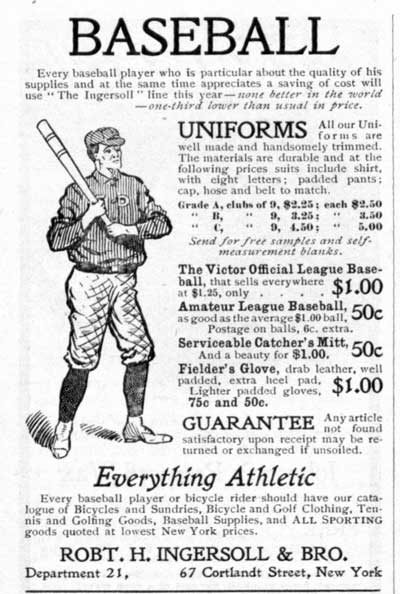
The Ingersoll store in New York was founded by Robert J. Ingersoll, who got his start selling watches, which included the popular $1.00 watch. Note that the uniform comes in three grades of quality, and that the catcher’s mitt at 50 cents is “serviceable,” but the $1.00 model is “a beauty.”
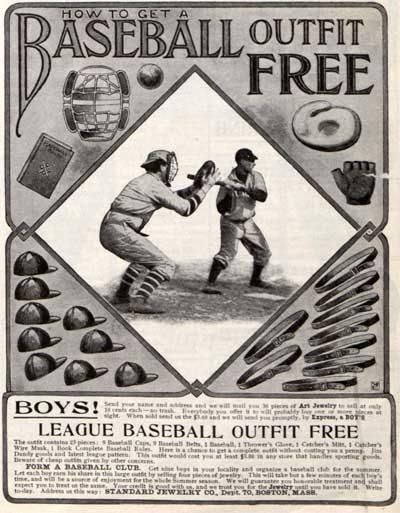
It seems improbable that boys would make good jewelry salesmen, but the Standard Jewelry company was betting they’d be desperate enough to sell 36 pieces of “art jewelry” to get a uniform. Despite the low, 10-cent price, the advertiser assured the boys these jewelry pieces were “no trash.”
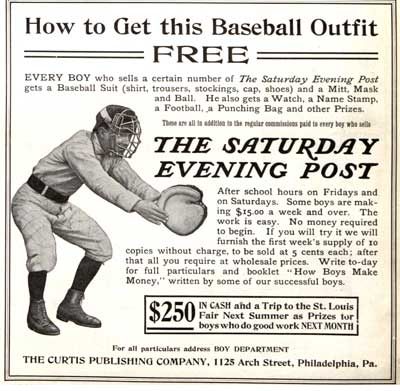
Even The Saturday Evening Post got into the uniform-premium game. During the first half of the 20th century, baseball equipment was a popular prize for boys and girls who sold the Post door-to-door. (We still hear from former Post-boys and Post-girls who got their start in business by selling our magazine long ago.)
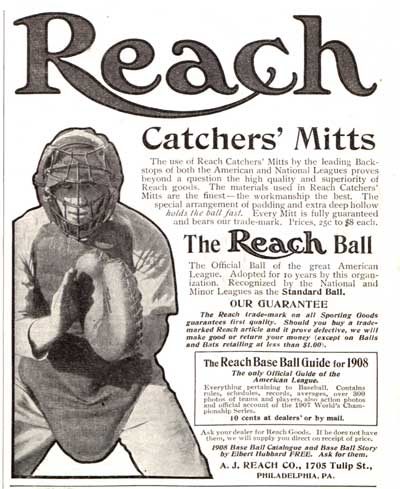
A.J. Reach was one of the first people paid to play baseball professionally. In addition to holding a position with the Philadelphia Athletic Baseball Club, he ran a tobacco shop and hand-stitched baseballs. By the late 1800s, his company also began manufacturing baseball gloves. Reach became so prosperous that, upon his retirement, he started his own ball club, the Philadelphia Phillies.
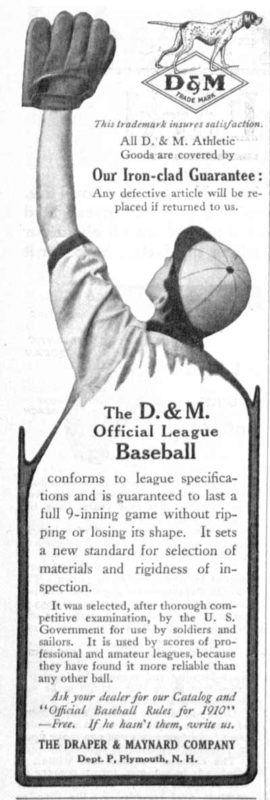
The Draper & Maynard Company started as glove manufacturers. But in the late 1890s, a player on the Providence Grays broke two fingers in a baseball game. He fashioned a protective glove for his hand using a model developed for teamsters. From that start, the company launched a famous line of sporting goods.
The promise that a D&M baseball would last nine innings “without ripping or losing its shape” says something about the quality of baseballs in those days.
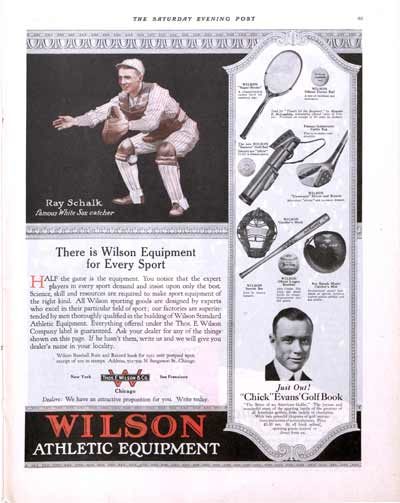
Wilson Sporting Goods began as a company that used slaughterhouse byproducts to make tennis-racket strings and baseball shoes. When Thomas E. Wilson took over the company in 1915, he branched into the baseball uniform business before expanding into making equipment for nearly every other sport.
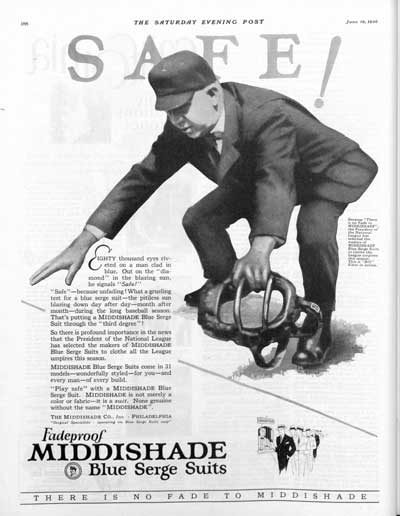
Major-league umpires have it easy today. They’re allowed to wear lightweight, casual shirts and pants. In the old days, they had to wear a dark blue serge suit, complete with coat and hat (in addition to a mask and chest protector), in the summer sun. The Middishade Clothing Factory was making suits until 1986, long after umpires began wearing a more reasonable uniform.
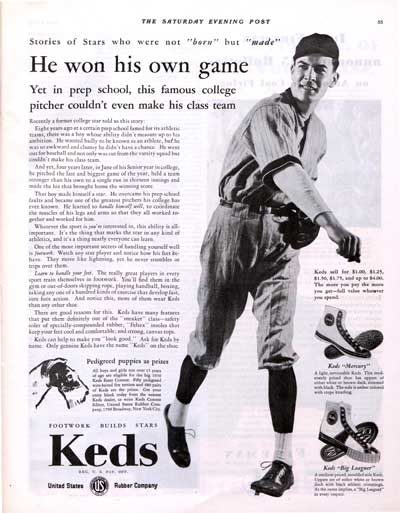
When U.S. Rubber introduced a line of rubber-soled athletic shoes in 1916, it intended to call them Peds (Latin for “foot”). Fortunately, that name was already in use, so the company decided on Keds. This ad is a good illustration of how much has changed in running shoes. It also shows how much has changed in promotional contests for kids. What sporting-goods company today would promote an essay-writing contest? And give 50 wire-haired fox terriers as prizes?
Become a Saturday Evening Post member and enjoy unlimited access. Subscribe now
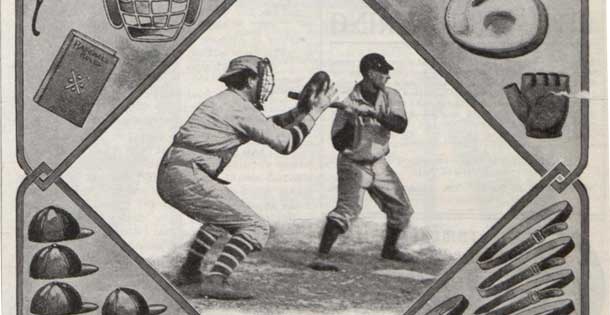
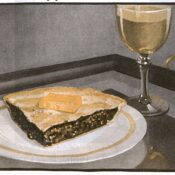
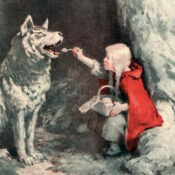
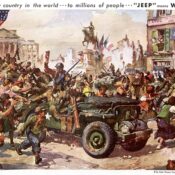
Comments
These are all great baseball themed ads, but my two favorites are from 1903 and ’04. I was just wondering when the era of boys (and girls) selling the POST ended. I have a feeling it was up to (and probably including) World War II, but am not sure of the post-War 1946-’68 period.
Also, do you know if the kids sold single copies in addition to the subscriptions?